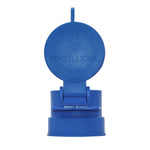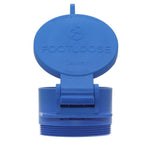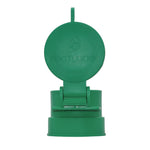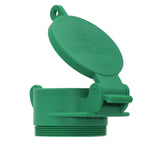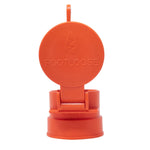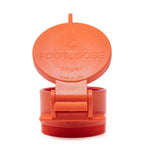You have no items in your shopping cart.
Property ownership is all about give and take—primarily, taking independence and giving your time and responsibility for maintenance and repairs. If you’re one of the 43 million people who use a private well for drinking water and other household water needs, water well maintenance and repair is one of those property ownership tasks that can save you time and money in the long run. Where do you begin?
To help you get started, we’ve built this guide on the top facts homeowners need to know about well maintenance and repair.
Facts to Know About Well Repair and Maintenance
While the type and amount of well maintenance you need will vary based on your well’s age and other factors, some aspects of well management always hold true. Keep these top facts in mind as you create a plan for maintaining your private well.
Wells need monitoring
A common assumption is that if something goes awry with your well, you’ll know it. That isn’t always the case.
For one, your water could be contaminated due to an issue in your well, and contaminants aren’t always noticeable in the color, smell, or taste of your water. Second, waiting until a problem occurs isn’t the best strategy. With proper well monitoring, you can often detect a budding issue before it becomes severe or starts impacting your water quality so you can repair it early.
Your monitoring should include testing your water at least once per year for contaminants in addition to inspecting your well equipment like plugs, caps, and so on. A water well contractor can set up a plan to routinely monitor your well and spot issues before they get out of hand. They can install well monitoring equipment to make it easier to collect samples and inspect your well.
You can save money with routine well maintenance
Preventative care can help you save money for nearly any part of your property, and that’s true for your water well, too. Yes, well maintenance costs money, but it can save you far more in the long run.
Consistent well and well pump maintenance can keep the various parts of your well in a better condition for longer, allowing you to minimize the need for major repairs. Well maintenance can also help you catch issues earlier because your contractor has eyes on your system more often. If you catch an emerging problem early, you may be able to fix it in a less expensive way. As a bonus, when you catch issues before they become emergencies, you can choose to do the repair when it’s most convenient for you.
Not all well contractors are equal
We’ve mentioned water well contractors a few times, so it’s important to talk about hiring a well contractor. Whether you’re hiring someone to install well monitoring equipment or perform a major repair, it’s vital that you do your due diligence.
The goal is to find a water well contractor you can trust who can become your contractor for years to come. This lets you establish a mutually respectful relationship and gives them a chance to get to know your well and your property for any relevant quirks and needs it may have.
Look for a well contractor who specializes in wells rather than a general contractor who services wells along with numerous other systems and structures. Ideally, choose someone who is local to your area and has years of experience and a long-standing reputation in the community.
Does a plumber fix a well?
A common question homeowners ask is, “What type of professional do I hire to fix my well?” While some expect that a plumber can address the issue, plumbers specialize in piping and interior issues. Although some plumbers may also offer water well services, they aren’t specialists in this area. The best choice is to hire a water well contractor to service your well.

Well repairs are an investment
Chances are you’ll need to do some repairs on your well at some point. As unfortunate as it is to have this sudden expense pop up, you can do yourself a favor by keeping an eye on the long term instead of the immediate situation.
This means that if your well needs a repair, you shouldn’t necessarily choose the cheapest option. You might get quotes from a few different contractors and find that one costs half as much as the others. Ask yourself why. If you or your contractor cuts corners, it could cost you far more in the long run when you need to have the repair re-done the right way. The financial costs pale in comparison to the risks a disrepaired well can pose to your family’s health and safety.
It’s important to maintain well service records
As you carry through your well maintenance and well repairs over the years, be sure to maintain records of everything—the equipment that is installed, well pump maintenance that is performed, inspections, water quality tests, and so on.
Sure, the ideal scenario is to work with the same well contractor for years who will have their own records and know your well inside and out. Eventually, though, they may move or close their business, and you’ll want to have records to bring your next contractor up to speed on your well’s history. These records are also crucial when you sell your property. All your well maintenance and repair records hold valuable details about issues your well is prone to, equipment that may be nearing the end of its life, etc.
You should always know the signs of well issues
As beneficial as a trusted well contractor can be, they aren’t at your home every day, so you need to know the signs of potential well problems to sound the alarm if necessary. Most notably, you should keep an eye on any changes to your water: color, taste, odor, pressure, etc. You should also be particularly watchful after flooding, freezing, or other weather events in your area because these can affect your water supply.
Well repair and maintenance isn’t a DIY project
Many homeowners like to handle as many of their projects as possible on their own to save money. That’s great when it comes to replacing carpet or fixing a leaky faucet, but for water well maintenance, hiring a professional is non-negotiable. Maintaining and repairing a well requires in-depth knowledge, specialized equipment, and precise safety precautions that only a specialist can manage.



